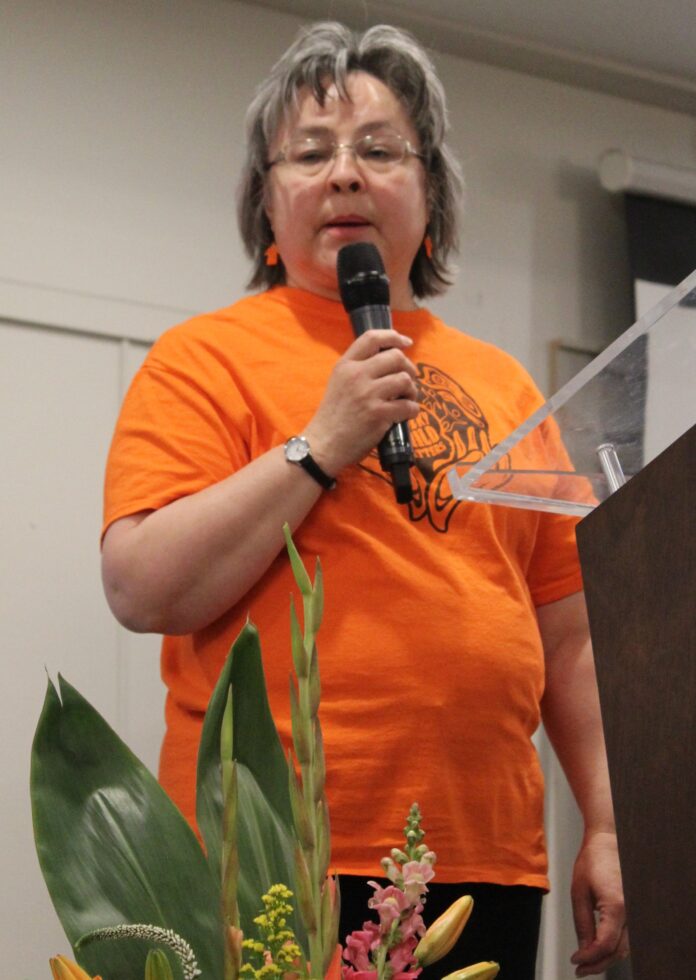Truth and Reconciliation Day is a time to remember the residential school survivors, and their families, along with engaging in meaningful discussions surrounding the residential school system.
However, where did this day originate and who started it?
Phyllis Webstad is the founder of Orange Shirt Day and vividly remembers the events that transpired when she was forced to remove an orange shirt her grandmother gave her when she attended her first day at St. Joseph’s Mission Residential School.
Webstad, 55, was born in Dog Creek, BC, and currently lives in Williams Lake. She says her first day of school was not hospitable, as the school forced her to remove the shirt her grandmother gifted her.
Webstad said in an interview during an event in Nelson, BC she protested the unfair treatment but despite her best efforts, the shirt was forcibly removed and never returned to her.
She adds the orange shirt is symbolic of truth and reconciliation and also means inclusion for people to have their voices heard.
“We wanted everyone to know people are welcome to tell their survival story,” Webstad said. “They were welcome to attend everything we were planning, anywhere it happened.”
Webstad said getting the movement to gain traction was very difficult at first, but in the end, the effort was worth it.
“It didn’t work at first, so I was chosen as a survivor from our planning group,” she said at the event. “I went to media events to let people know what was happening.
“This is when I told my story.”
Webstad said the date for Orange Shirt Day, and the national holiday wasn’t arbitrarily chosen.
“We chose September because that is the time of year people were taken from their homes and families,” she said. “We then needed a day, so we chose the 30th to give teachers and students time to settle in.
“At this time, it was just for the Mission, and to have a conversation, at least once a year.”
This year marks the tenth anniversary of Orange Shirt Day and Webstad said she is pleased with how much change has already happened.
“It has been really hard,” she said. “But to see all these people and have them come up and acknowledge the change that is happening gives me that little bit of energy to keep going.”
Webstad said providing awareness, and education, around truth and reconciliation now is critical because the story will fade.
“Orange Shirt Day is here to stay, along with National Truth and Reconciliation Day,” she said. “One day there will be no survivors in Canada, but there will be days to commemorate it.”






